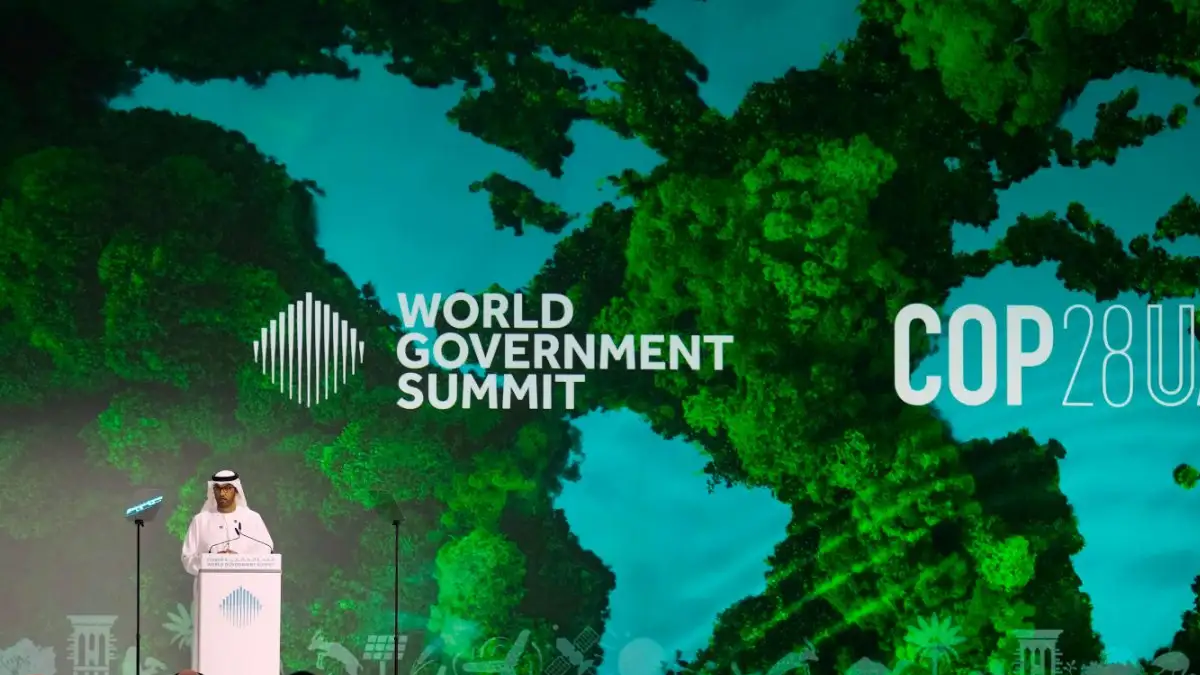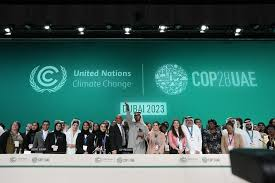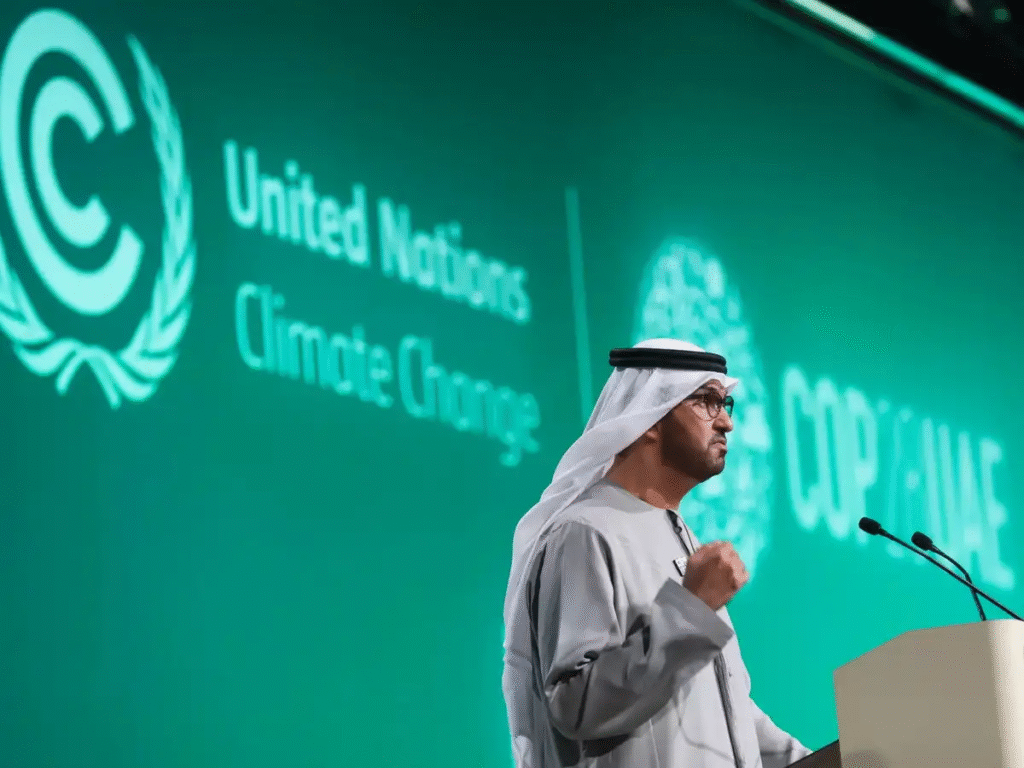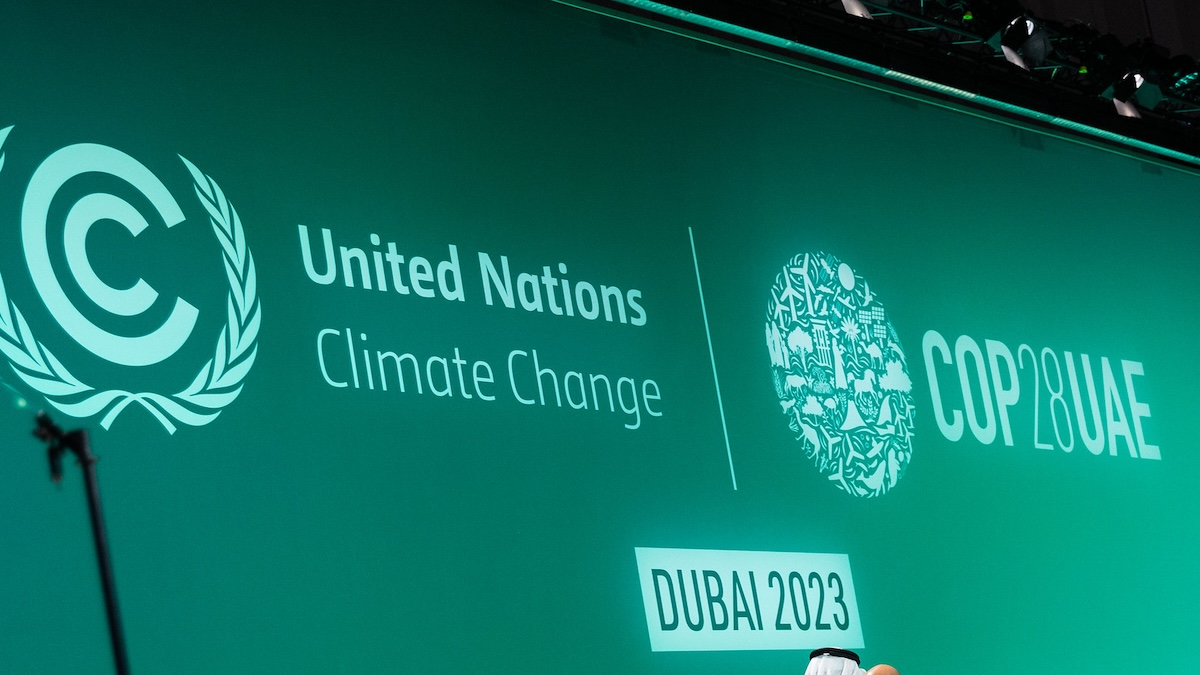Now Reading: COP28 UAE: Will This Climate Summit Finally Change the World?
-
01
COP28 UAE: Will This Climate Summit Finally Change the World?
COP28 UAE: Will This Climate Summit Finally Change the World?

The world is watching as the 28th Conference of the Parties (COP28) to the United Nations Framework Convention on Climate Change (UNFCCC) takes place in the United Arab Emirates (UAE). This crucial global event on climate change is being held in Dubai from November 30 to December 12, 2025. Leaders from nearly 200 countries, along with thousands of activists, scientists, business leaders, and environmentalists, have gathered to discuss and decide the future of our planet.
The UAE, known for its oil wealth, hosting a major climate summit like COP28, has raised eyebrows worldwide. But it has also sparked hope that real change may happen—because if an oil-producing nation leads climate discussions, the world may finally see commitments turning into action.
What is COP28?

COP28 stands for the 28th “Conference of the Parties.” It is the annual meeting where world governments review and negotiate agreements to tackle climate change. The goal is simple yet urgent: to limit global warming to below 1.5 degrees Celsius compared to pre-industrial levels. Exceeding this limit could bring dangerous and irreversible damage, such as extreme floods, droughts, wildfires, and rising sea levels.
The importance of COP28 cannot be underestimated. It follows COP27 in Egypt, where countries agreed to create a special fund to help developing nations cope with climate damage—a breakthrough moment. Now, COP28 is expected to make these promises real by setting clear timelines and rules.
Why is COP28 in the UAE So Important?
Several reasons make COP28 in the UAE unique and historic:
- First COP Hosted by a Major Oil Producer:
The UAE is the world’s seventh-largest oil producer. Hosting COP28 signals that even fossil fuel giants recognize the need for a green transition. The UAE has also announced plans to reach net zero carbon emissions by 2050. - The First Global Stocktake:
COP28 features the first-ever “Global Stocktake”, a full review of how countries are progressing towards the Paris Agreement goals of 2015. This stocktake will show who is on track—and who is not. - Record Attendance Expected:
More than 70,000 delegates are expected, including heads of state, CEOs, youth activists, and indigenous leaders. It may be the largest COP ever, showing growing global interest in climate action. - Focus on Renewable Energy and Decarbonization:
The UAE wants COP28 to speed up the shift to renewable energy like solar, wind, and green hydrogen while reducing fossil fuel use. It plans to triple global renewable energy capacity by 2030.
Key Issues and Debates at COP28 UAE
1. Phasing Out Fossil Fuels
The biggest debate is whether the world will commit to phasing out coal, oil, and gas. Many countries, especially small island nations, demand a total phase-out. But fossil fuel producers are pushing for “abatement” technologies like carbon capture instead of giving up oil and gas altogether.
2. Climate Finance
Rich countries promised to deliver $100 billion a year to help poorer nations fight climate change. But they have fallen short. At COP28, developing countries are demanding firm financial commitments—especially to the new “loss and damage” fund designed to pay for climate disasters.
3. Adaptation Support
Besides cutting emissions, countries need to adapt to new climate realities—like rising sea levels and changing weather. African nations and other vulnerable regions want more funding and technology support for climate adaptation.
4. Global Stocktake Results
This “climate report card” will tell us if the world is on track to limit warming. Experts fear the answer will be “no,” unless urgent action is taken to close the emissions gap.
UAE’s Role and Climate Commitments
The UAE has surprised many by taking ambitious green steps ahead of COP28. It has invested billions in solar energy, built the world’s largest single-site solar power plant, and set targets for net zero emissions by 2050. However, critics argue that these efforts are overshadowed by its continued oil exports.
Dr. Sultan Al Jaber, the President of COP28, is also the CEO of ADNOC, the UAE’s national oil company—a controversial dual role. While some see this as a conflict of interest, others argue that only insiders like him can convince the oil industry to change from within.
What the World Expects from COP28 UAE

- A Clear Fossil Fuel Exit Plan:
Environmental groups want COP28 to announce a global plan to phase out fossil fuels completely. - Faster Renewable Energy Expansion:
Leaders hope to agree on measures to triple renewable energy production by 2030. - Strong Climate Finance Promises:
Developing countries are counting on real money, not just words, to help them survive and adapt. - Technology Sharing and Green Jobs:
Rich nations may offer technology transfers to poorer ones and promises to create millions of green jobs worldwide.
The Stakes Have Never Been Higher
Scientists warn that the world is already 1.2°C warmer than pre-industrial levels. Without rapid emissions cuts, we could hit 2.5°C or more by 2100—bringing chaos to food systems, water supplies, and human health.
Many see COP28 as the last, best chance to change direction. Failure to act now could mean climate tipping points—like melting ice sheets and dying rainforests—becoming unstoppable.
Conclusion: Will COP28 UAE Deliver Real Change?
The world needs more than promises. It needs action, money, and measurable progress. COP28 in the UAE offers a unique platform to unite oil producers, green energy pioneers, and vulnerable nations. Whether history will remember COP28 as a breakthrough or another missed opportunity depends on the boldness of its decisions.
Read More:- Deyaar’s Latest Announcement Shakes Up the UAE Property Market





















